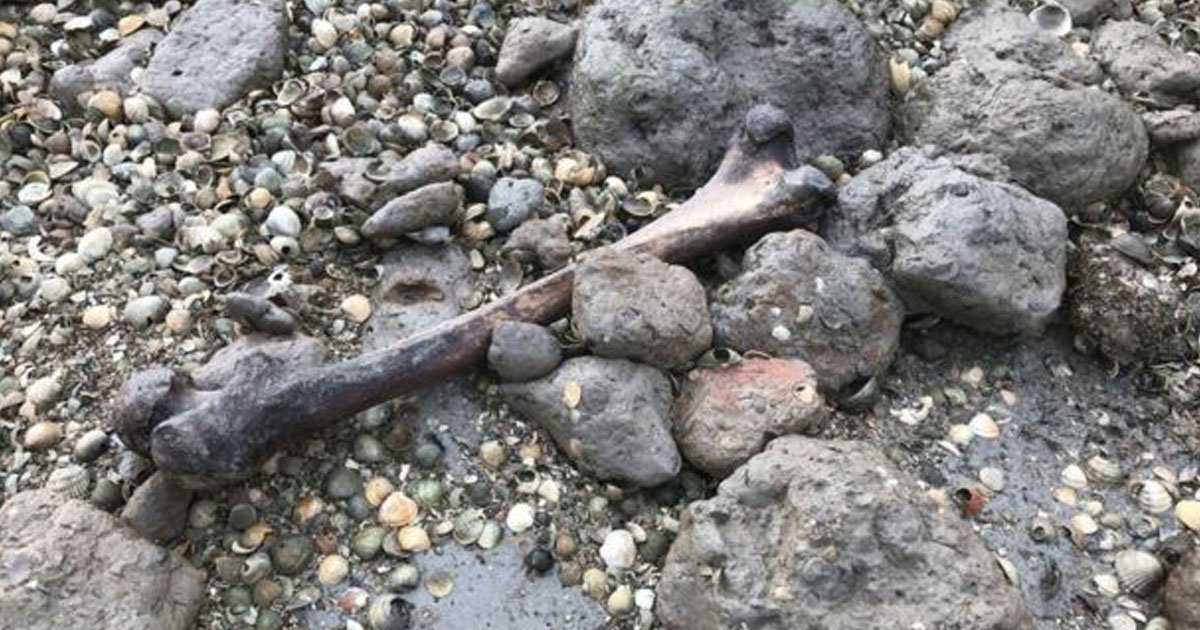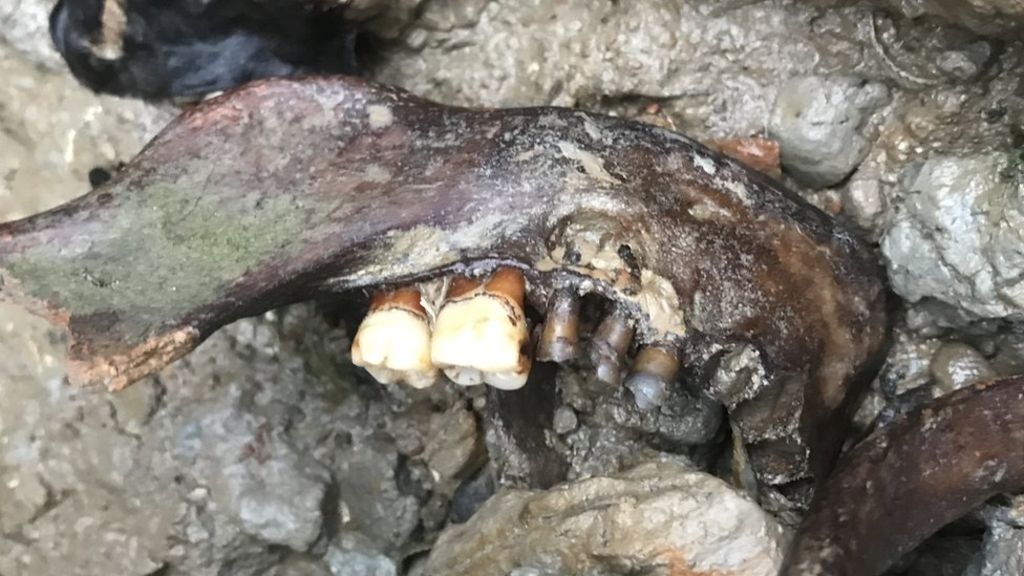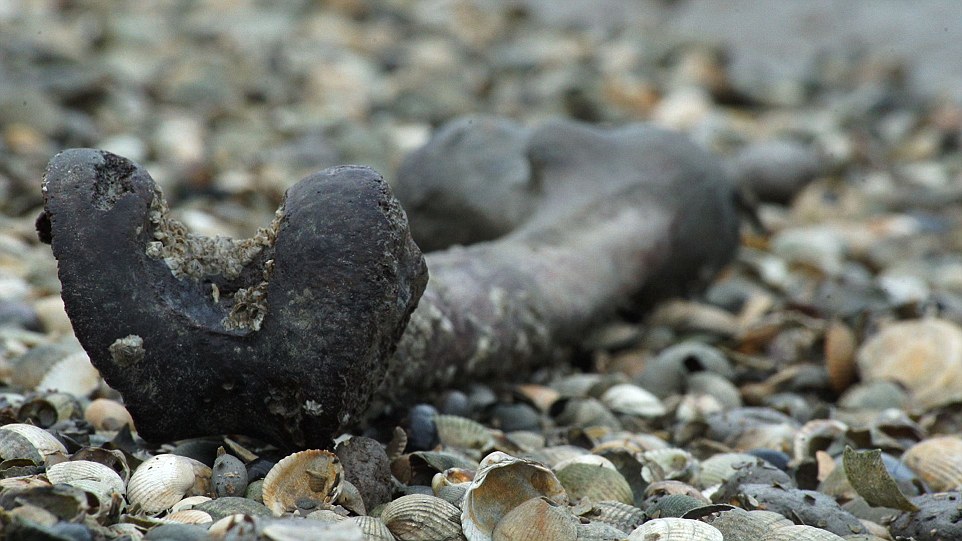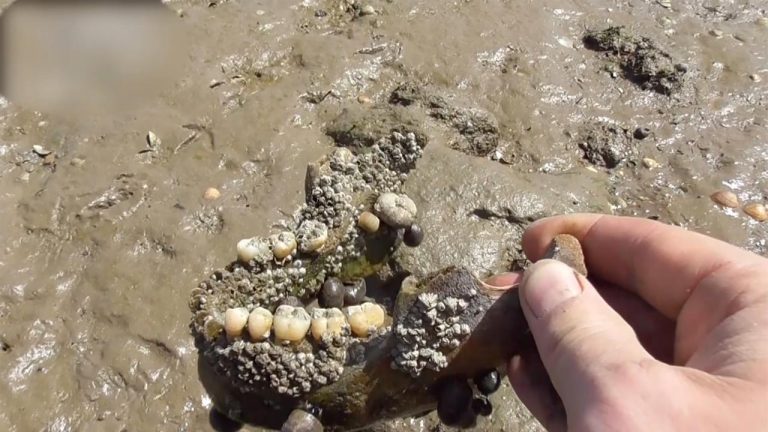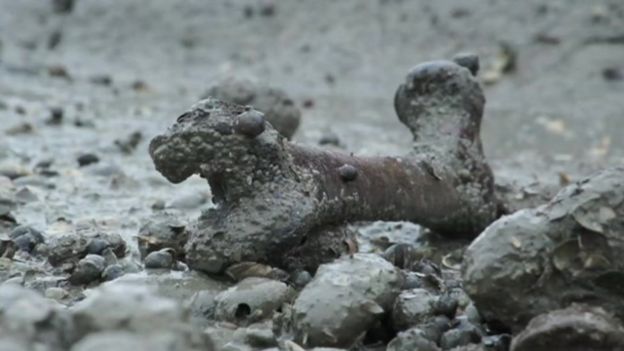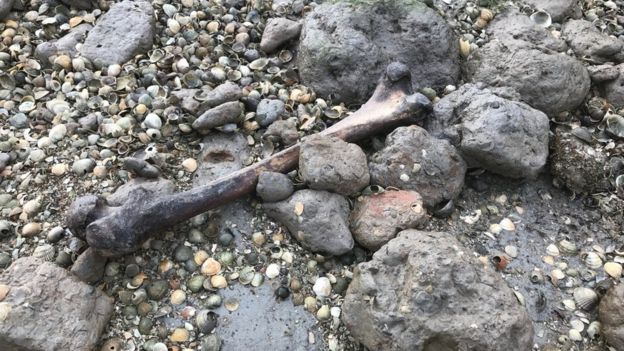Amateur adventurers discovered skulls, ribs, and jawbones on the banks of Deadman’s Island in Kent.
Watch the skulls, ribs, and jawbones on the banks of Deadman’s Island
[rumble video_id=v58l1v domain_id=u7nb2]
When Simon and Stephen took a hovercraft past the Isle of Sheppey, Kent, they found bones, half a dozen jawbones, ribs, pelvises, and a metatarsal while walking on the banks of Deadman’s Island in Kent.
Simon said: “I felt shocked and saddened. Even though these people are more than likely criminals, they don’t deserve their bodies to be left like this.”
“In a perfect world, these would be gathered up and reinterred somewhere.”
The small river island was a former prison colony and was used to bury prisoners who passed away from contagious diseases in the 19th century. Their coffins were buried six feet below the mud.
The human remains can now be found on the banks of Deadman’s Island due to rising sea levels.
Kent archaeologist Dr. Paul Wilkinson said: “This particular island was retained for people who died of contagious diseases so that the disease couldn’t erupt through prison ships and the local populations.”
Simon said: “We were very respectful of the environment and didn’t step onto the Island itself. All the bones we found were left in situ on the foreshore and we have notified people at the Museum of London.”
The Deadman’s Island lies at the mouth of The Swale on the Isle of Sheppey, off the north Kent coast and is owned by Natural England.
Naval historian Professor Eric Grove said: “They would be people who picked pockets and would include ten-year-olds sentenced to 15 years transportation.”
“A lot of crimes carried the death penalty, but as a way of being humane and also to inhabit the colonies, it was decided it would be good to transport convicts.”
“But you tended to find that if people were not considered healthy enough to take the voyage to Australia, they would be left in the hulks.”
[rumble video_id=v16nvq domain_id=u7nb2]


